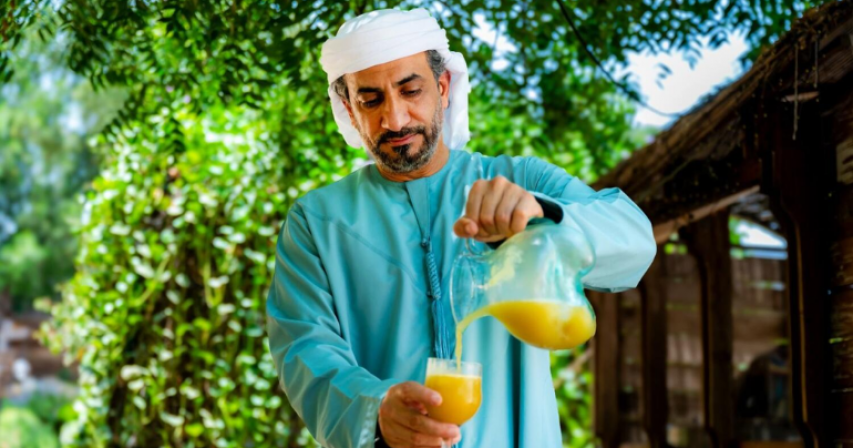Inside Sharjah's 'most beautiful' garden built by UAE royal

In Sharjah, a garden crafted by Emirati royal Sheikh Ali Al Mualla stands as a testament to creativity and sustainability. Twice named the Most Beautiful Home Garden in Sharjah by the Sharjah Municipality, this stunning oasis boasts features that would overshadow even the most exotic botanical displays.
Sheikh Ali Al Mualla, an artist from the royal family in Umm Al Quwain, has poured his heart into this sanctuary. The garden is a wonderland, featuring a fully functional zipline, adventure zones, ponds, waterfalls, and lush greenery. But that’s just the beginning. It also includes a climbing net, a giant swing, a slide, and a tunnel, making it a paradise for both nature lovers and adventure seekers.
Al Mualla takes great pride in his creation, calling it his greatest masterpiece. Contrary to popular belief, the garden was not an expensive venture. “Many think I have invested heavily in my garden, but everything here is made from discarded or unwanted trees from various sources, reclaimed building materials, and tools I reshaped and manufactured myself,” he explained to Khaleej Times.
His passion for art and craftsmanship shines through every aspect of the garden. When he had the opportunity to build his own house, Al Mualla focused intensely on the garden, ensuring that every element reflected his artistic vision. From sculpting to installation, each feature bears the unique imprint of his hands.
The garden is dotted with about a dozen seats, each crafted from recycled tree trunks, remnants of trees, and construction waste. Each seat has its own distinctive character, contributing to the garden’s eclectic charm. Additionally, a raised cabin offers a panoramic view of the garden. This cabin leans against a boulder weighing over 14 tonnes on one side, while the other side rests on a large tree trunk. It can comfortably accommodate around 20 people, making it an ideal spot for sipping coffee and catching up with friends.
One of the garden's standout features is a 30-foot-long table made from a single tree trunk, with no joints. This remarkable piece is perhaps the longest of its kind in the UAE, providing ample space for numerous guests to sit along its sides.
For Sheikh Ali Al Mualla, the garden is more than just a collection of plants and structures. It’s a gateway to another world, where reality fades into the enchantment of nature. “My garden is like a multicultural village using reclaimed wood. The concept of my entire garden is sustainability,” he said.
Al Mualla's ingenuity extends to every corner of his sanctuary. He sees potential where others see waste, finding creative ways to repurpose discarded materials. “Whenever I encounter discarded trees or construction remnants, I seize the opportunity to breathe new life into them,” he shared. His garden is a living testament to the idea that beauty and sustainability can go hand in hand.
The accolades from the Sharjah Municipality recognize not just the aesthetic appeal of the garden, but also the innovative and environmentally friendly practices behind its creation. Al Mualla's garden is a prime example of how sustainable practices can lead to extraordinary results. By using reclaimed materials and focusing on craftsmanship, he has created a space that is not only visually stunning but also eco-friendly.
The garden has become a symbol of artistic innovation and environmental stewardship in Sharjah. It inspires visitors to think differently about waste and sustainability, encouraging a more mindful approach to how we interact with our environment. Al Mualla's work demonstrates that with creativity and dedication, it’s possible to create spaces that are both beautiful and sustainable.
In conclusion, Sheikh Ali Al Mualla’s garden is a remarkable achievement in both art and sustainability. It stands as a beacon of what can be accomplished when creativity meets environmental consciousness. As more people visit and learn about this incredible space, its influence will likely extend far beyond the borders of Sharjah, inspiring similar projects around the world.
By: Sahiba Suri





Comments